
|
|||
QUOTED
|
|||
TOP STORYMinisters from 17 countries meet in Riyadh for talks on Syria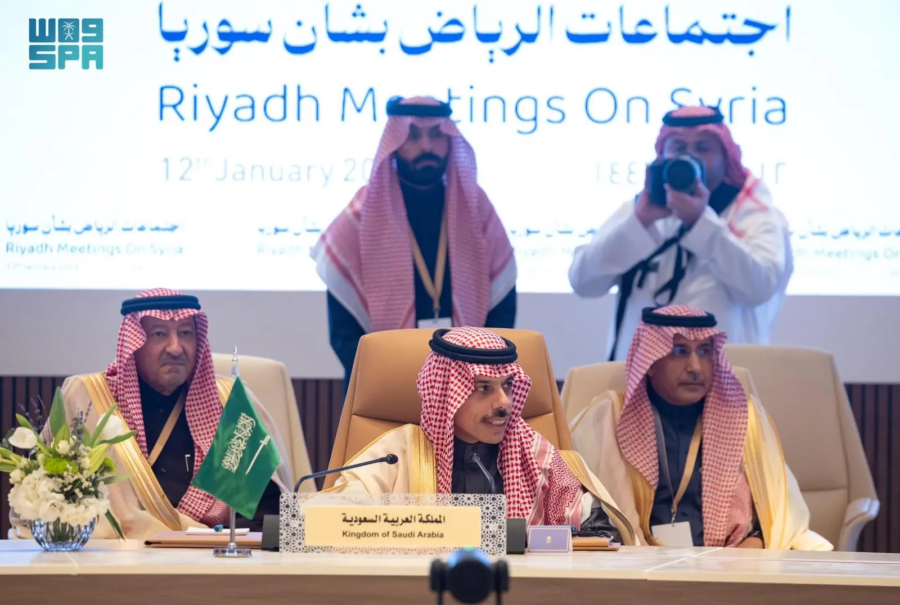
The Riyadh meeting on Syria was attended by representatives of a number of countries from the Middle East and beyond, including Syria, Jordan, Lebanon, and Turkiye, as well as the UK and US. Officials from the GCC, EU and UN also took part. [more] |
|||
TOP STORYTesla to enter Saudi Arabia this quarter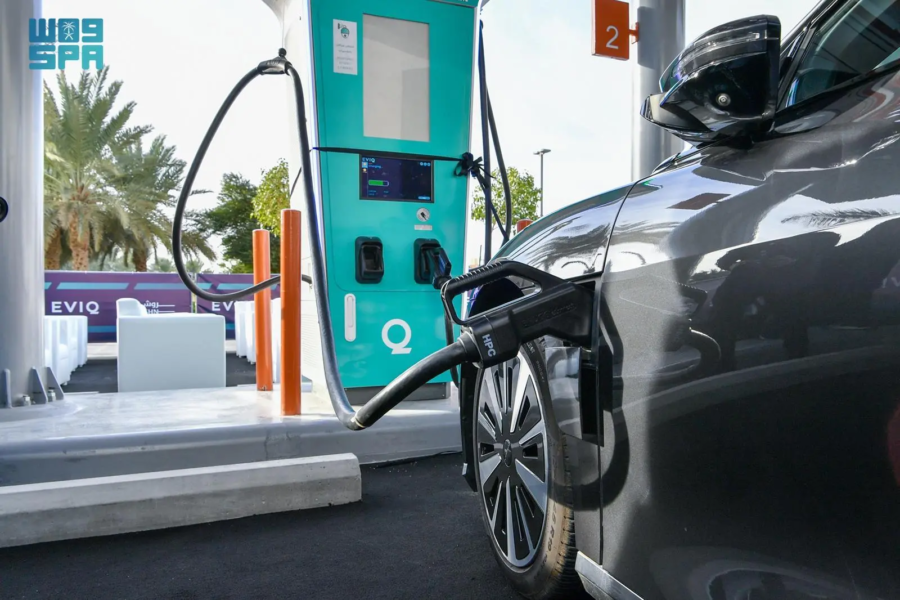
Writing for Arabian Gulf Business Insight, Megha Merani reports that Tesla is set to launch in Saudi Arabia within months. [more] |
|||
TOP STORY‘Golden Handshake’ initiative to launch in effort to boost government efficiency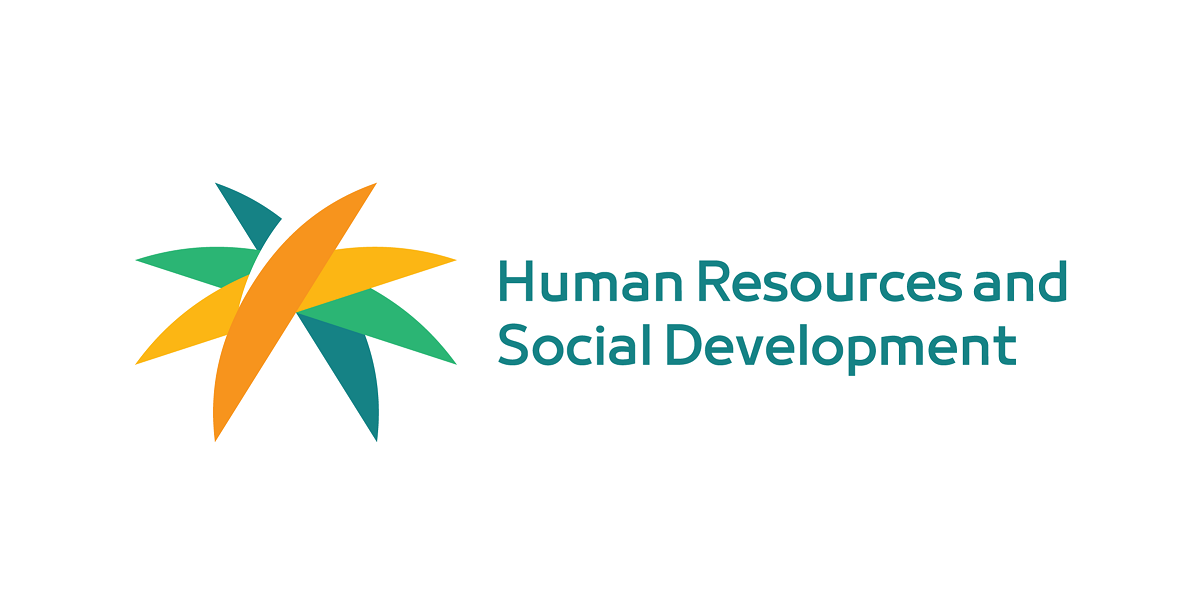
Saudi Arabia is planning to offer cash incentives to encourage public sector employees who meet certain criteria to resign. [more] |
|||
TOP STORYKAUST develops technique to extract lithium from seawater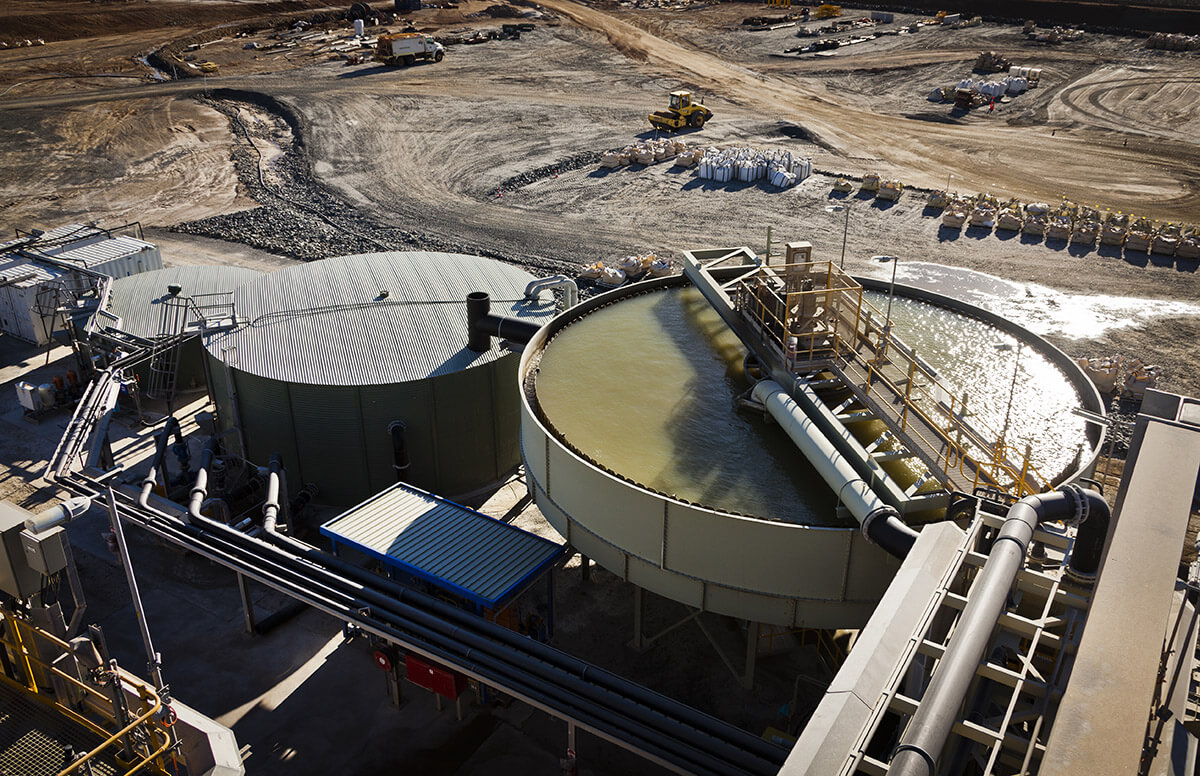
A recent study by scientists at King Abdullah University of Science and Technology (KAUST), published in the journal Science, developed a new technology for directly extracting lithium from brine in oil fields and seawater, where lithium is present in extremely low concentrations. [more] |
|||
TOP STORYFuture Minerals Forum wraps in Riyadh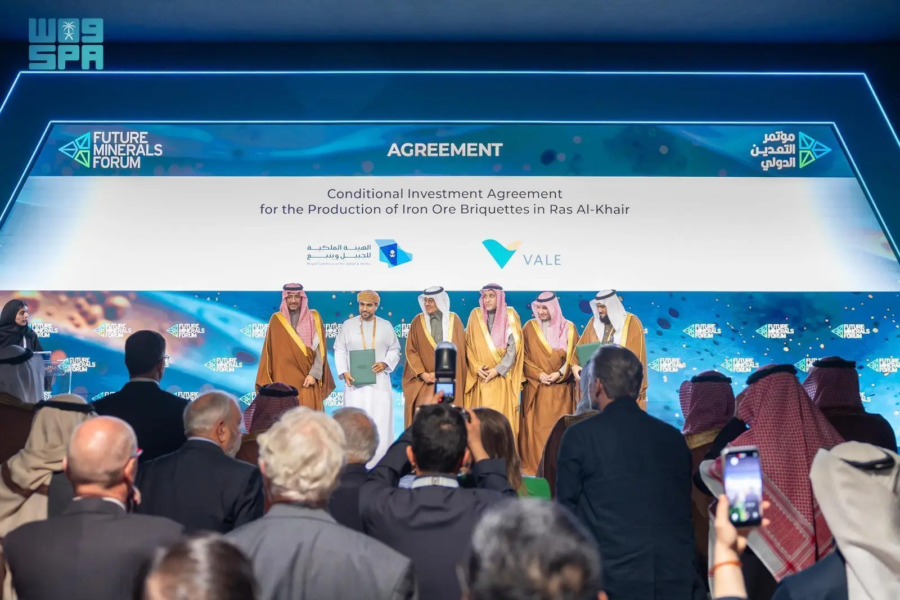
The fourth Future Minerals Forum, hosting government representatives from 90 countries, including 16 G20 nations, ran from January 14 to January 16 at the King Abdulaziz International Conference Center in Riyadh. [more] |
|||
Saudi Listings Grab the Spotlight in Gulf’s IPO BoomVia Laura Gardner Cuesta in yahoo.com: Initial public offerings from Saudi Arabia have been the star performers in a string of recent share sales in the Middle East, where some high profile regional listings have had tepid debuts in the last few months. Initial public offerings from Saudi Arabia have been the star performers in a string of recent share sales in the Middle East, where some high profile regional listings have had tepid debuts in the last few months. “The bullish euphoria surrounding the primary listings in Saudi Arabia shows no signs of stopping,” said Vijay Valecha, chief investment officer at UAE-based broker Century Financial, pointing to a “glaring contrast” between newly-listed stocks in Saudi and elsewhere in the region. |
|||
What does the ceasefire agreement mean for Israel, Hamas and the wider Middle East?Via Joseph Krauss in apnews.com: Israel can point to countless tactical victories in the war, from the assassination of top Hamas leaders to the blows it rained on Lebanon’s Hezbollah and Iran itself, which backs both groups. But Israel fell short on two central aims: Hamas to date has survived, even if greatly weakened, and several hostages taken captive during Hamas’ Oct. 7, 2023, attack died in captivity. Some were accidentally killed by Israeli forces, others by their Hamas captors as troops closed in. Israelis see the return of captives as a sacred obligation, worth the agonizing price of releasing large numbers of imprisoned militants in lopsided deals. The inability to reach a deal through months of negotiations tore the country apart. |
|||
Oil is no longer an energy security challenge as critical minerals take center stage, Saudi minister saysVia Natasha Turak in cnbc.com: “Oil is no longer an energy security challenge – it’s going to be gas, electricity, predominantly minerals,” Saudi Energy Minister Abdulaziz bin Salman told attendees at the annual Future Minerals Forum in Riyadh. “Today some of these countries, they have, as a country, 50% of the ownership of some of these required minerals and critical minerals … countries are racing to access critical minerals and secure their own supply chain. Rushing to secure access to resources will ultimately lead to higher emissions, higher metals costs and higher energy prices.” The energy minister was referring to minerals critical to the energy transition and advanced technologies – including lithium, cobalt, nickel, graphite, manganese and other rare earth elements crucial for making things like electric vehicles, batteries, renewable energy technology, computers, and household goods. |
|||
The Largest Risks Faced by the WorldVia Felix Richter in statista.com: Over the next 10 years, climate change and its consequences will pose the greatest risk to the world. That’s according to more than 900 global experts from academia, business and politics, who were asked to evaluate 33 global risks over a two-year and a 10-year horizon for the World Economic Forum’s annual Global Risks Report. With inflation having eased in most parts of the world, the experts no longer consider the cost-of-living crisis one of the most pressing issue in the short-term. Instead, for the second year in a row, misinformation and disinformation is considered the most severe risk over the next two years. Following the super election year 2024, misinformation is still considered a major risk, as AI tools have facilitated the creation of false information, be it in the form of text, image or even video. It has the potential to further sow division, resulting in even more polarized societies, which are prone to radicalization and political unrest. |
|||
Saudi Arabia welcomes ceasefire agreement in Gazain arabnews.com: Saudi authorities welcomed the announcement of a Gaza ceasefire agreement on Wednesday and expressed the Kingdom’s appreciation for the efforts of mediators from Qatar, Egypt and the US. The Kingdom stressed the need for adherence to the deal, an end to Israel’s aggression against Gaza, and the complete withdrawal of Israeli forces from the territory and all other occupied Palestinian and Arab lands. It also highlighted the importance of building on the agreement by addressing the underlying reasons for the conflict and enabling the Palestinian people to secure their rights, the foremost of which is the establishment of an independent Palestinian state based on 1967 borders, with East Jerusalem as its capital. |
|||
A ceasefire deal is here. For Gaza, the Middle East and the world, the future remains unknownVia Patrick Wintour in theguardian.com: Security for Israel, he argued, had to include a credible political horizon for the Palestinians, or else Hamas “or something equally abhorrent” will “grow back”. He said the country “must abandon the myth they can carry out de facto annexation, without cost and consequence to Israel’s democracy, to its standing, to its security”. Yet, he complained, “Israel’s government has systematically undermined the capacity and legitimacy of the only viable alternative to Hamas: the Palestinian Authority”. Indeed, the weakening of Iran is probably the biggest regional impact of the war in Gaza. Biden had a point this week in claiming that, all told, Iran “is weaker than it has been for decades”. He elaborated: “Iran’s air defences are in shambles. Their main proxy, Hezbollah, is badly wounded, and as we tested Iran’s willingness to revive the nuclear deal, we kept the pressure with sanctions. Now Iran’s economy is in desperate straits.” A 35-year tack to build a defence strategy around a proxy army had been eviscerated in a matter of months. |
|||
Saudi Arabia and Italy Sign Energy Cooperation DealVia Charles Kennedy in oilprice.com: Italy and Saudi Arabia on Tuesday signed a cooperation agreement in the energy sector, with an emphasis on renewable energy, hydrogen, and carbon capture, Italian Energy and Environment Minister, Gilberto Pichetto Fratin, said while on a visit to Riyadh. Italy’s minister signed the agreement with Saudi Energy Minister Abdulaziz Bin Salman Al Saud on the sidelines of the Future Minerals Forum in Riyadh. The five-year cooperation agreement includes boosting bilateral cooperation in hydrogen production, renewables, and carbon capture and storage (CCS). The new cooperation deal will focus on clean energy and clean tech, including low-carbon hydrogen and green ammonia, according to the Italian government. |
|||
Over 18.5 million pilgrims performed Hajj and Umrah in 2024in alarabiya.net: Saudi Arabia’s Minister of Hajj and Umrah, Tawfiq al-Rabiah, said Monday that more than 18.5 million pilgrims from outside the Kingdom performed Hajj and Umrah in 2024. He highlighted recent advancements, particularly in enhancing visits to al-Rawdah al-Sharifah at the Prophet’s Mosque. By upgrading the workforce, streamlining the online booking process, and implementing a professional crowd management system, the number of visitors increased from 4 million in 2022 to over 13 million in 2024. The minister also unveiled an upgraded version of the “Nusuk” app, now offering 100 additional services designed to provide an integrated pilgrimage experience. |
|||
Sotheby’s First Saudi Sale Is Led by Magritte, BoteroVia Margaret Carrigan in artnet.com: Works by René Magritte, Fernando Botero, and Refik Anadol will headline Sotheby’s debut sales event in Riyadh, Saudi Arabia. Featuring around 100 lots, the two-part auction on February 8 will be held at Diriyah, a UNESCO World Heritage site, and include works by canonical artists from the West and pioneering Arab artists, as well as luxury items such as jewelry and watches, handbags, and sports memorabilia. The sale marks the first international auction in the kingdom’s history, according to the auction house. It will be a test of the strength of the Gulf art market amid increasing investment in the region. “Many of the artists that we are bringing have never been exhibited in Saudi before,” said Ashkan Baghestani, the Sotheby’s specialist heading up the sale, explaining that the house wants “to show a new audience what Sotheby’s can offer, giving a taste of the various fields and artists we represent at auction, and giving them exposure on a fresh and exciting platform.” |
|||
Biden says on ‘brink’ of hostage release/Gaza ceasefire dealVia Laura Rozen in substack.com: President Biden, a week before he is due to hand over power, expressed optimism about prospects for at long last reaching a deal for the release of some of the 100 hostages held by Hamas in exchange for Palestinian prisoners held in Israeli prisons, and a phased ceasefire in Gaza. The basic structure of the three phase deal is one the administration has been pursuing for over eight months. “On the war between Israel and Hamas, we are on the brink of a proposal that I laid out in detail months ago, finally coming to fruition,” Biden said in a valedictory foreign policy speech at the State Department today. |
|||
US reliance on Saudi oil is nearing its endgameVia Javier Blas in deccanherald.com: The US bought roughly 277,000 barrels a day of Saudi crude last year, down nearly 85% from a record high of 1.73 million barrels a day in 2003. To find lower imports, one must travel back to 1985, when flows briefly plunged as the kingdom cut output to try to push oil prices higher. To find several years of similarly low imports, one must go back all the way to the late 1960s. The collapse in Saudi-US oil flows will deepen further in 2025 as one of the five refineries that has been regularly importing the barrels closes, according to custom documents. Lyondellbasell NV is shuttering its Houston plant this quarter, leaving only four consistent clients for the kingdom’s oil in America. The remaining plants are the Motiva refinery near Houston, owned by the Saudis themselves via their state-owned oil company; a refinery run by Chevron Corp. near Los Angeles, and two plants owned by PBF Energy Inc. in New Jersey and Delaware. Motiva alone accounts for 40% of the Saudi crude the US imported last year. The reduced number of buyers compares with two decades ago, when 25 (and, at times, even more) refineries regularly processed Saudi crude. |
|||
Strong post-IPO performance bodes well for Saudi flotationsVia Matt Smith in agbi.com: Recently floated Saudi Arabian companies have thrived since listing on Riyadh’s bourse, thanks in part to astute pricing of initial public offerings and foreign institutional investors’ growing participation. Since the start of 2024, there have been 14 IPOs in Saudi Arabia that raised more than $100 million, according to data compiled by AGBI and London Stock Exchange Group (LSEG). Eleven of these companies trade at above their IPO price as of market close on January 12 and nine are up more than 10 percent. These gains come despite the wider market’s stutters, with the main index near-flat over the past 12 months. This bodes well for this year’s IPOs. Five companies have approval to go public, including Derayah Financial, technology business Ejada Systems, animal feed maker Arabian Agricultural Investments and packaging company United Carton Industries. About 30 more are awaiting the regulatory nod to do likewise. |
|||
Lebanese president says Saudi Arabia to be 1st destination for foreign visitsin middleeastmonitor.com: Lebanese President Joseph Aoun said on Saturday that Saudi Arabia will be his “first destination” for foreign visits after assuming office on Thursday, Anadolu Agency reports. In a statement, the Lebanese presidential palace confirmed that President Aoun had received a phone call from Saudi Crown Prince Mohammed bin Salman. During the call, the crown prince conveyed the congratulations of King Salman bin Abdulaziz on Aoun’s election as the president of Lebanon and extended an invitation for him to visit Saudi Arabia. In response, Aoun confirmed that Saudi Arabia would be his first foreign visit, emphasizing the country’s “historical role in supporting Lebanon” and the importance of Lebanon’s Arab identity in shaping its regional relations. |
|||
US tightens its grip on AI chip flows across the globeVia Karen Freifeld in aol.com: The U.S. government said on Monday it would further restrict artificial intelligence chip and technology exports, divvying up the world to keep advanced computing power in the U.S. and among its allies while finding more ways to block Chinas access. The new regulations will cap the number of AI chips that can be exported to most countries and allow unlimited access to U.S. AI technology for Americas closest allies, while also maintaining a block on exports to China, Russia, Iran and North Korea. The lengthy new rules unveiled in the final days of outgoing President Joe Bidens administration go beyond China and are aimed at helping the U.S. keep its dominant status in AI by controlling it around the world. New limits will be placed on advanced graphics processing units (GPUs), which are used to power data centers needed to train AI models. Most are made by Santa Clara, California-based Nvidia, while Advanced Micro Devices also sells AI chips. Nvidia and AMD were down between 2% and 3% in premarket trading on Monday. |
|||
Saudi Arabia exceeds 2030 target for regional HQsVia Pramod Kumar in agbi.com: The number of companies setting up their main regional base in the kingdom has reached 571, primarily in the industrial sector, Khalid Al Falih told Asharq Business, an Arabic-language financial portal. The Gulf state, he said, has moved beyond the HQ goals and is working to get global companies to contribute to Saudi Arabia’s economic development. The regional HQ programme is part of plans to make Riyadh one of the world’s 10 largest city economies by 2030 and increase its population to as many as 20 million. These companies will be exempt from corporate tax for 30 years, in addition to relaxed requirements for Saudisation – the programme to increase employment of Saudi nationals – and offering work permits for the spouses of company executives. |
|||